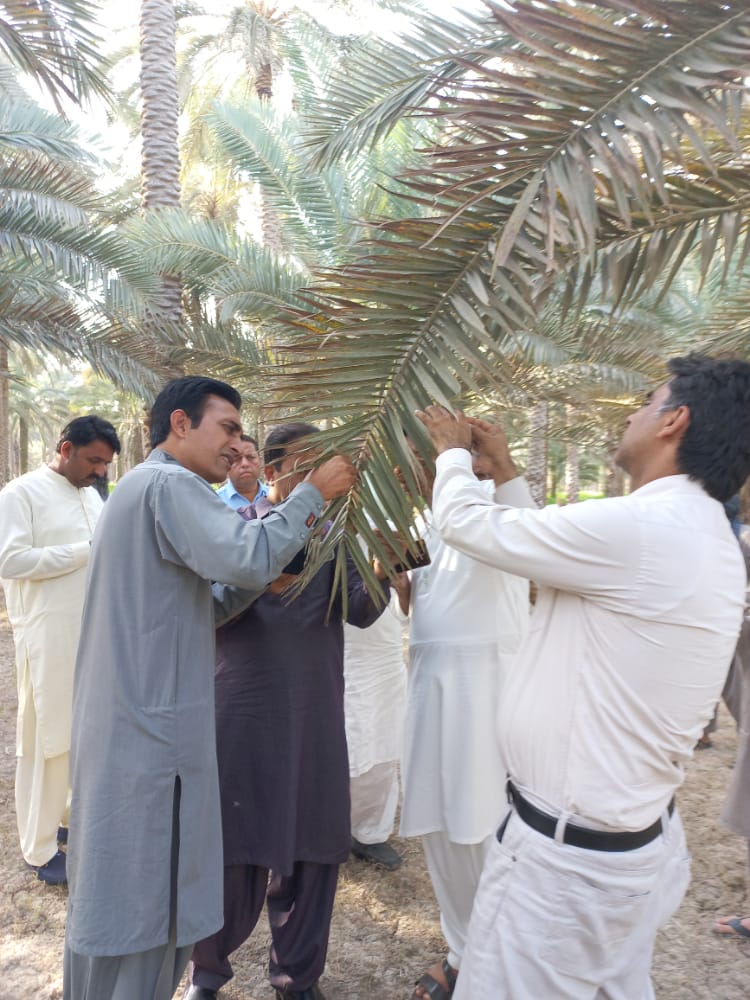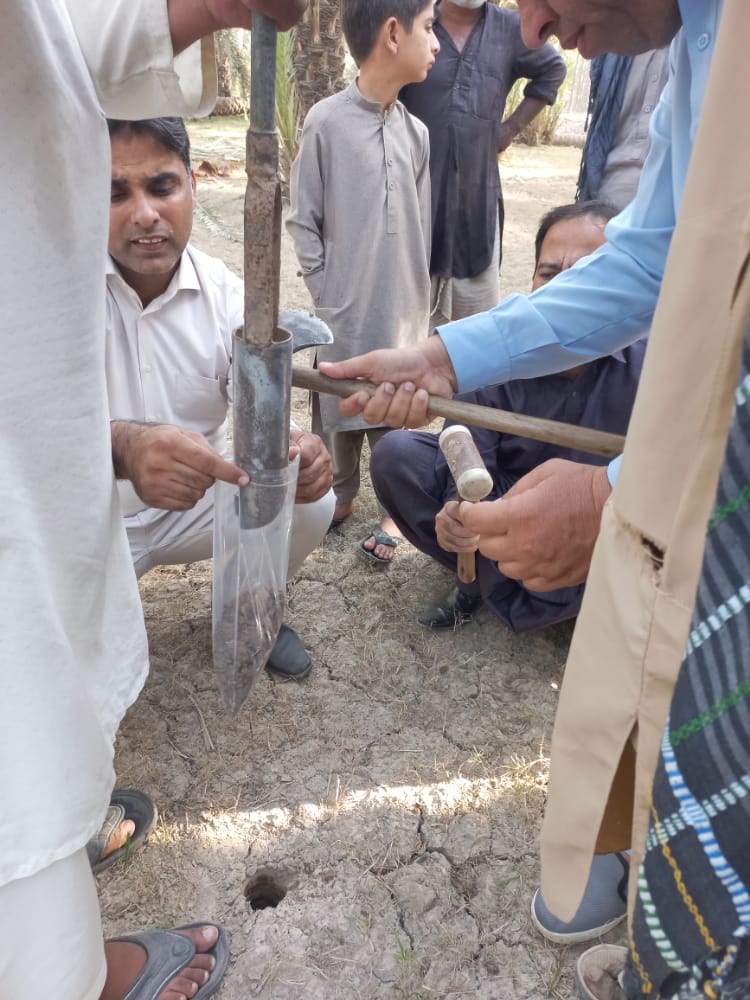Together with our partner Flores Farm and SEQUA from Germany, we have been developing a date project in Pakistan since 2017. We support the project through pre-financing of machinery and goods and know-how transfer and are proud to offer the dates already on the European market. The farmers produce mainly two varieties of dates: The Aseel variety, which is rather soft and suitable for the production of bars or energy balls, and the BJ variety, which can be ideally used in cubes in muesli.
Sequa gGmbH is a globally active, non-profit development organization. Since 1991, it has been implementing international cooperation programs and projects in close cooperation with the German business community. The focus of its work is the promotion of the private sector. Sequa offers competence and experience in its business areas of chamber and association promotion, vocational training, and trade promotion. Headquartered in Bonn, Germany, sequa employs over 90 people (2020) and has a turnover of 46 million euros (2019).
Shareholders of sequa are the four leading associations of the German economy: BDA, BDI, DIHK and ZDH and since 2010 also the GIZ. sequa works closely with the constituted German economy in its programs and projects. This gives the company direct access to the knowledge of experienced experts from German chambers, associations, training centers and private companies.
Sequa's areas of activity include program administration, project management and consulting. For the financing of its programs and projects, sequa acquires public funds from national and international donors. Central clients are the BMZ and the European Commission.
Pakistan is the only country in East Asia where date cultivation and date marketing play an important economic role. A large proportion of the dates, which are grown in many different varieties, are exported in fresh or dried form. Date orchards exist in all four provinces of the country, but the center of date cultivation is in Sindh province.
Pakistan could increase its global date marketing if farm management, pre-harvest, harvest and post-harvest, and ultimately the quality of the fruit, were improved. There are significant production deficiencies, particularly in many areas of mostly smallholder agriculture and small and medium processing operations. Because the quality of the fruit often does not meet higher standards and is not uniformly stable, it is bought up by traders or nationally operating processing companies at low prices, which prevents investment in improving cultivation and harvesting techniques and in certification measures.
To make matters worse, many smallholder farmers fall into debt. They are forced to borrow money from the buyers of their fruit because they do not have access to bank loans or government subsidies. At the same time, however, many of the local small processors are unable to command high prices on the national market, much less the international market, because of the inferior quality of the dates and their derivatives. This also makes it impossible for them to invest in the purchase of modern equipment, in certifications or in qualification measures for their employees. Thus, both small farmers and small processors are in a state of stagnation, which makes it very difficult to overcome poverty and backwardness. Only by creating value for the local products around date cultivation in the country itself can poverty be overcome and the associated positive economic and social aspects for the people involved be achieved.
What are our goals?
One way to create added value in date production and marketing - while increasing quality - is to convert to organic farming and obtain internationally recognized certificates for the cultivation and processing of dates. This approach is pursued by Flores Farm with the described project. On the one hand, the aim is to enable small farmers to grow and harvest dates of certified organic quality and thus be in a position to demand a higher fair price from traders and processors. On the other hand, small local processors and cooperatives and their employees are also to be given the knowledge and opportunity to sell their products on international markets through know-how transfer, investment in processing facilities and improved hygiene, as well as certification and marketing training.






